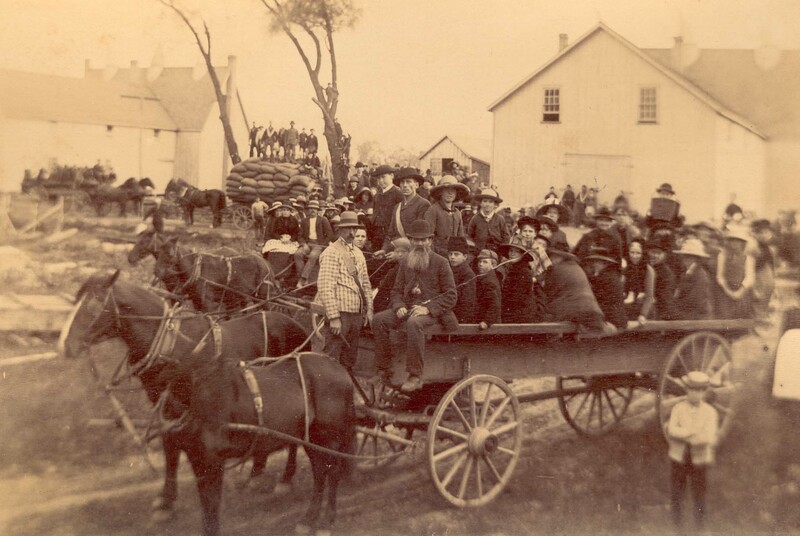Raymond Knister: An Interview
An article by Francis H. Stringer, published in The Globe, Toronto, in 1931.
Port Dover, April 3, 1931. —
The wide, open spaces which appealed to Raymond Knister when he was a boy guiding the plow through the cornlands of the Essex homestead still make their influence felt as he sits at his table (with plenty of elbow room) in the centre of the large room which is his workshop. Here are his beloved books and an open fireplace. Should Mr. Knister ever decide to write a historical novel, what better setting could he have? For the brick cottage in which he resides was fortified during the troublous times of 1837, and in one of the doors is still the wicket through which the soldiers received their pay.
The atmosphere of this room has been surcharged since the announcement of Mr. Knister’s success, many telegrams and letters congratulating the winner of the Graphic all-Canadian novel contest having poured in and interrupted the creative process as laid down by Sir. James Barrie: “Two pipeful equal one idea; four ideas equal one page.” Mr. Knister, like his interviewer, is a devotee of My Lady Nicotine. The weather is too inclement to allow of his going out to spade his garden, and — not having decided on the plot for his next book — the author may be excused if he takes some time off to peruse current literature, and, mayhap, the curling wreaths of smoke may suddenly suggest a trend of thought even more fascinating than that of the love story of John Keats, which so recently won marked distinction.
The craft of writing is varied by sundry handicrafts. He grows his own vegetables and does his own typing; tinkers with his auto and cuts the logs for the fireplace aforesaid, but does not walk the floor nights with his daughter, Imogen, who, for calm serenity, takes her Shakesperian namesake from her mother.
Mr. Knister was particularly gratified this week by having a congratulatory wire from the dean of Canadian writers, Charles G. D. Roberts and a call from Mr. Marcus Adeney of Toronto, the winner of the second prize. It was discovered during the course of the conversation that the Toronto author is a year younger; that they were both married the same year; that the wife of each is a clever illustrator, and that each home has recently been visited by the stork.
Mr. Knister feels strongly that the formation of a truly Canadian literature is bound to be one of the prime agents in the building up of a truly national spirit, it being his opinion that the writers of the Elizabethan period did as much for the sudden flowering of the English spirit as the “sea dogs” did. It is only by having a strongly individual literature that any country can have an outstanding identity. A Britisher is always a Britisher in any part of the world. One reason for this is their characterization of British types by such writers of the great train leading from Shakespeare to Scott, Dickens and Shaw.
Now that the economic life of Canada is on a firm foundation, it is reasonable to hope that such a formation of a truly national identity is bound to follow. Such contests as these—with the discovery of such a galaxy of promising words—are among the encouraging portents for the future.

